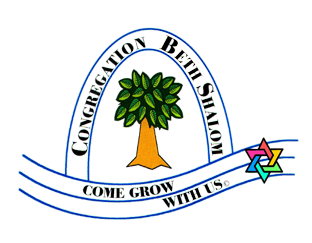Everyone can benefit from a reminder of some of the standard procedures and customs concerning coming up for an honor.
Coming up to the bimah is an honor (kavod). One shows one’s eagerness at receiving such an honor by dressing appropriately and being ready for one’s honor. If you are unsure of how to perform an honor you have received, please call Michael Weilein. Someone from the Ritual Committee will be pleased to explain.
In general, one should approach the front of the sanctuary and sit in the first row of the sanctuary when the service proceeds to within 2-3 pages of the honor. In this way, one not only demonstrates one’s eagerness and delight at being honored but in return honor the community by not upsetting the service flow.
One need not bring up extraneous items to the bimah, such as tallit bags or purses. Purses should be particularly avoided since they represent the carrying of money. We even place copies of the prayers for the Torah blessings on the bimah so that those honored with an aliyah will not even need to bring up their machzorim (prayerbooks).
One traditionally ascends the bimah by the shortest route, an indication of one’s eagerness to be a link in such a glorious heritage. Everyone coming up for an honor traditionally wear an appropriate head covering, men and women alike. The wearing of a head covering has long served as a symbol of humility before God and community as well as an emblem of piety.
If honored with an aliyah to the Torah, one should wear a tallit and be prepared to give one’s Hebrew or Yiddish name. Hebrew/Yiddish names consist of the formula:
(your H/Y name) + (son of or daughter of) + (your father’s H/Y name) + (your mother’s H/Y name)
You should also inform members of the Ritual Committee and the gabbaim (any assisting the Torah service) if you are a Kohen or a Levi. Questions about Jewish names can be referred to the Rabbi.
Before descending the bimah, one should shake hands with everyone on the bimah at the time, such as other honorees and including the Rabbi and the Cantor (if they are not engaged in leading prayers). In so doing, you will also be fulfilling the traditional reluctance to leave the bimah—a holy place—quickly. (Who would want to leave the Torah’s presence quickly?!!) You may be greeted, on the bimah or as you make your way back to your seat, with some version of yasher ko-ach, a wonderful two-word phrase loosely meaning, “May your strength continue,” that is, “may you continue to be a proud member of our people and synagogue family, being in good health to come back and receive honors and perform mitzvoth.” The proper response to this blessing is Baruch ti-ye, “May you be blessed.” Of course, you will never go wrong on Rosh HaShanah with L’shanah tovah, “(May you be inscribed) For a good year, or on Yom Kippur with Chatimah tovah, “May you be sealed for good (in the coming year).”


